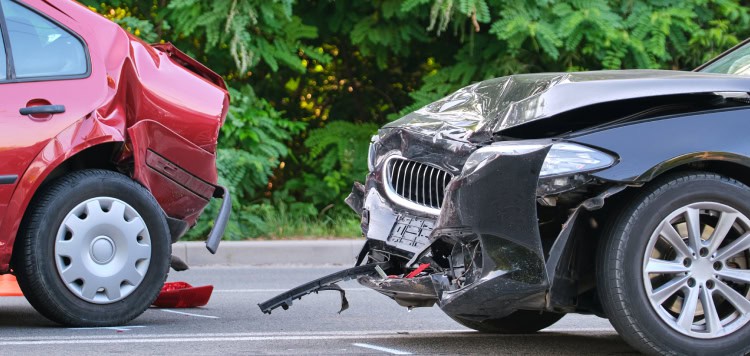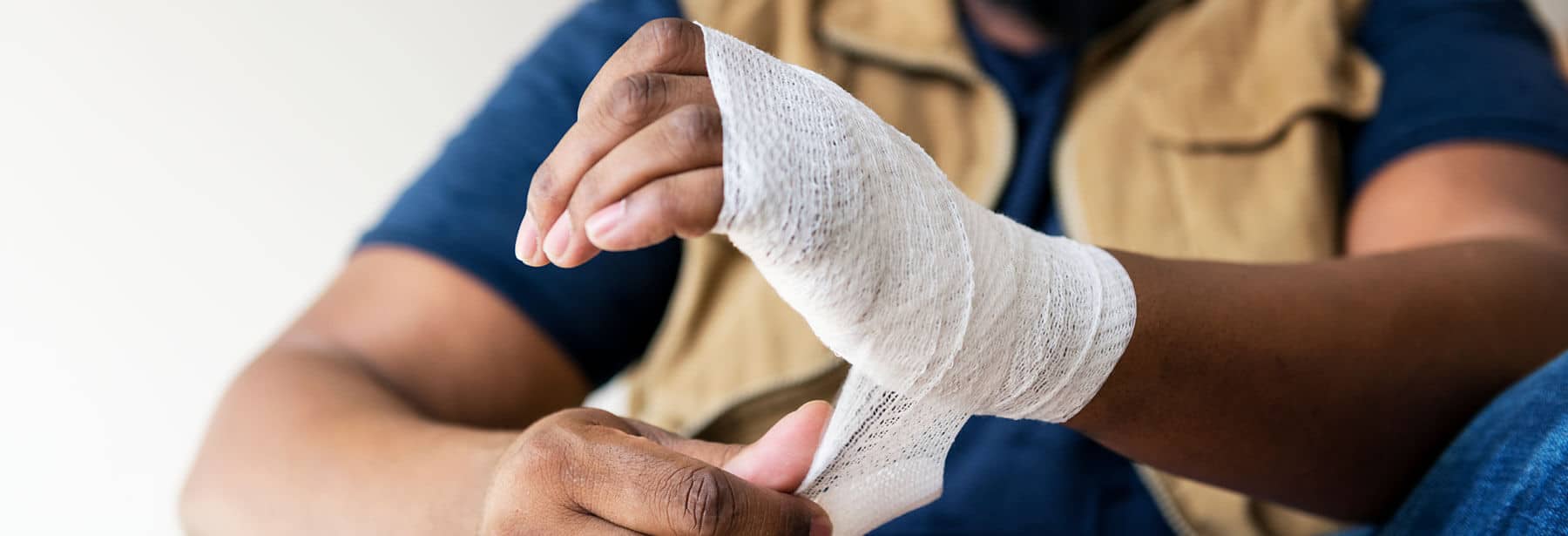Welcome to McIntyre Law’s legal resource library
It can be hard figuring out what to do after you’ve been injured. As personal injury attorneys, we’ve dedicated our lives to understanding this process and fighting for those who have been wrongfully injured.
Along the way, we’ve used our knowledge to put together resources that can help keep people informed about their rights and prevent others from being injured in the first place.
You can refer to information if you or someone you love has been harmed or injured. If you’d like to speak with one of our attorneys about your situation, you can always contact us.
Search resources by keyword:
Browse resources by type:
Traffic accident resources

Learn the most common causes of vehicle crashes, the types of injuries that are typically sustained, and what the expected recovery times are. You’ll also find tips on avoiding accidents and maximizing your safety on the road.
Guide to Avoiding Trucking Accidents
How to safely share the road with semi-trucks and tractor-trailers Any licensed driver has encountered commercial carriers, also called tractor-trailers, 18-wheelers, semi-trucks or big-rigs. Many of these vehicles can weigh …
Read more: Guide to Avoiding Trucking AccidentsGuide to Preventing Motorcycle Accidents
How common are motorcycle accidents? There is no debating that motorcycles are an inherently dangerous means of transportation. With the rising popularity of these types of drivers, the number of …
Read more: Guide to Preventing Motorcycle AccidentsHow to Recover from a Car Accident Injury
How long does it take for your body to heal after an accident? Depending on the severity of your injury, it can take weeks or even months to feel better …
Read more: How to Recover from a Car Accident InjuryOklahoma Drunk Driving Statistics
2015 Oklahoma drunk driving statistics: Fatalities are on the rise Driving Under the Influence, or DUI, is a huge problem — and not just for Oklahoma. Drunk driving statistics show that …
Read more: Oklahoma Drunk Driving StatisticsUnderstanding Vehicle Accident Causes and Injuries
Why Vehicle Accidents Happen Car accidents can happen for a variety of reasons. In most cases, there is a person at fault or responsible for causing the accident. This normally …
Read more: Understanding Vehicle Accident Causes and InjuriesMedical Malpractice Resources

Navigating the medical system isn’t easy, especially when something goes wrong or a mistake is made. The following information will teach you more about the most common types of medical malpractice, who is generally at fault and what you can do if you’ve been harmed.
How to Identify Medical Malpractice
What is medical malpractice? Medical malpractice refers to the legal concept in which a healthcare provider, such as a doctor, nurse, or hospital, breaches the standard of care expected in …
Read more: How to Identify Medical MalpracticeMisdiagnosis, Overdiagnosis & Other Diagnostic Errors
What is a diagnostic error? A diagnostic error is a diagnosis that is missed, wrong, or delayed. It often takes additional tests or findings to determine what the real issue …
Read more: Misdiagnosis, Overdiagnosis & Other Diagnostic ErrorsPreventing Nursing Home Abuse and Neglect
Nursing home abuse and neglect statistics Even if you place your loved one in the best nursing home that’s affordable for your family, you aren’t guaranteed they’ll be safe. Thousands …
Read more: Preventing Nursing Home Abuse and NeglectSurgical Errors: What to Do If a Surgeon Makes a Mistake
What is a surgical error? A surgical error is an avoidable mistake made by a medical professional during surgery that results in additional or unanticipated harm to the patient. Although all surgeries …
Read more: Surgical Errors: What to Do If a Surgeon Makes a MistakeWaking Up During Surgery & Other Cases of Anesthesia Malpractice
How dangerous is anesthesia? Although anesthesia is generally safe, we continue to see problems associated with its use. Individuals continue to suffer permanent damage or death as the result of …
Read more: Waking Up During Surgery & Other Cases of Anesthesia MalpracticePersonal Injury Resources

Our resources on personal injury will help you understand what to do if you’ve been injured due to negligence, as well what to expect during recovery. Knowing the long-term consequences of your injury is essential as you explore your legal rights.
7 Types of Traumatic Brain Injury
Jump to section: 1. Concussions Concussions are a common form of mild traumatic brain injury (TBI) caused by a sudden jolt, blow, or impact to the head or body, resulting …
Read more: 7 Types of Traumatic Brain InjuryFDA Recall Watch
Understanding FDA Recalls of Drugs and Medical Devices An FDA recall of a drug or medical device is the often voluntary action of a company to correct and/or remove a …
Read more: FDA Recall WatchThe Subtle Signs of Traumatic Brain Injury
Understanding head trauma Unfortunately, many assume that once a person has been sent home, there is nothing else to worry about. This can be a very dangerous assumption, since any …
Read more: The Subtle Signs of Traumatic Brain InjuryTypes of Premises Liability Claims
What is premises liability? Premises liability is a legal concept that holds property owners responsible for maintaining safe conditions on their premises and protecting visitors from potential harm. Whether it’s …
Read more: Types of Premises Liability ClaimsWhat Happens If My Personal Injury Claim Goes To Court?
Various Components Of A Personal Injury Claim When cases go to court, they go through various steps, from start to finish. In many personal injury cases, a jury selection will …
Read more: What Happens If My Personal Injury Claim Goes To Court?Why It Is Essential To Hire An Experienced Spinal Cord Injury Attorney
What Is A Spinal Cord Injury? Spinal cord injuries are those which impact the spine itself or nerves located along the spinal column. These injuries can result in the partial …
Read more: Why It Is Essential To Hire An Experienced Spinal Cord Injury Attorney